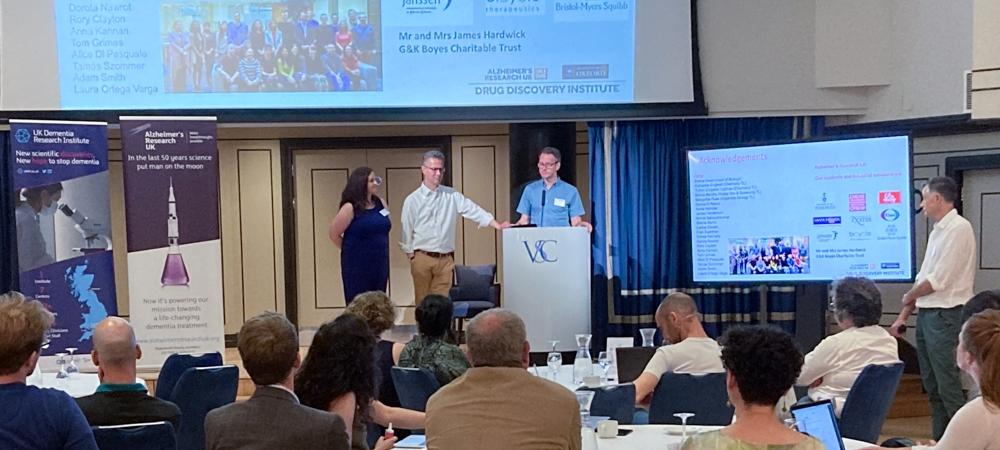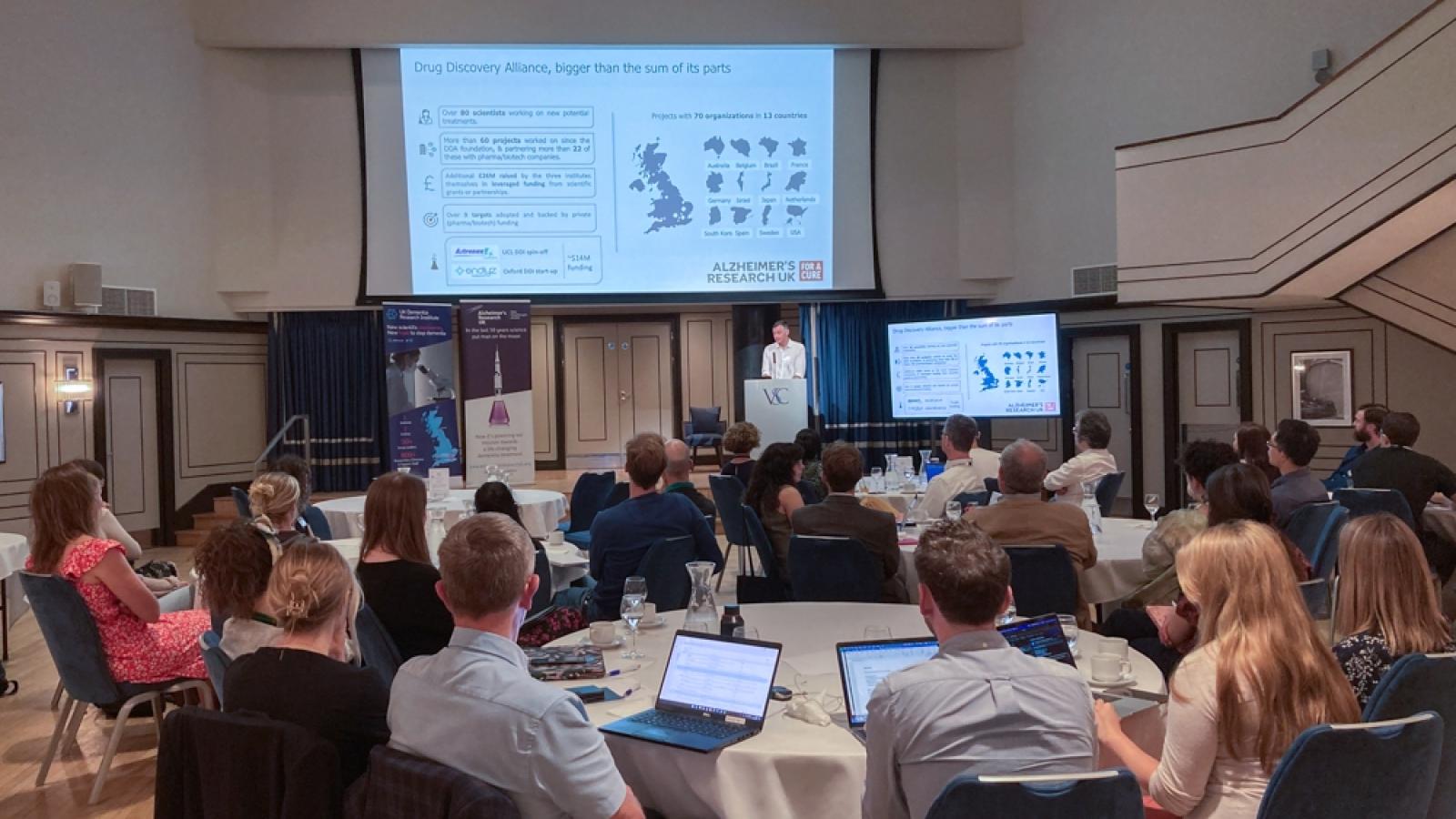At the UK DRI, we’re working to decipher the biological causes underlying neurodegenerative disease. This is the first step in the development of new treatments, but there are still many hurdles to overcome in identifying promising targets for therapeutic intervention. In the UK, we are fortunate to have the expertise of the Drug Discovery Alliance (DDA), playing a vital role in bridging the gap between discovery research and the pharmaceutical industry.
The Drug Discovery Alliance is an ambitious initiative driven by UK DRI founding funder, Alzheimer’s Research UK (ARUK). It consists of three cutting-edge Institutes (DDIs), hosted at University College London, the University of Cambridge (Alborada) and the University of Oxford. Each Institute has its specialty but all work together to capitalise on promising discoveries in neurodegeneration, like those made at the UK DRI.
Alzheimer's Research UK announced the launch of the Drug Discovery alliance
The DDIs work hand-in-hand with academics to validate promising drug targets and determine the most suitable type of therapeutic to pursue (e.g. antibodies, antisense oligonucleotides, small molecule). The team have the means to screen targets against thousands of chemical compounds to identify ‘hits’, before performing optimisation and proof-of-concept testing. Their significant experience stretches further by facilitating conversations with industry partners.
This month, UK DRI and ARUK came together for a joint workshop, convening academics and experts at each of the DDI’s to find out more about how the organisations can work together through new collaborations. The workshop also signalled the launch of a new translational funding call for UK DRI researchers supported by dedicated funding from ARUK and the Medical Research Council Impact Acceleration Award (MRC IAA). It will not be the first time the UK DRI and DDIs have collaborated, with several promising projects already off the ground.
projects undertaken by the Drug Discovery Alliance since its formation, spanning 13 countries in collaboration with 70 organisations

The Chief Scientific Officers of the three Drug Discovery Institute's take questions from the audience
(L-R - Fiona Randall (UCL), John Skidmore (ALBORADA Cambridge), Paul
Prof Adrian Isaacs (Group Leader, UK DRI at UCL) is researching the causes of Amyotrophic lateral sclerosis (ALS) and frontotemporal dementia (FTD). With support from a UK DRI translation award, he has partnered with the UCL DDI to develop a high-throughput screen to identify a small molecule targeting stathmin-2. In ALS, this protein is depleted by the main toxic protein pathology TDP-43, and there is evidence its restoration may offer a therapeutic opportunity. Although stathmin-2 antisense oligonucleotide treatments are already completing phase I trials, Prof Isaacs hopes that the development of a small molecule could offer significant advantages with regard to lower cost, easier access (oral administration) and successful penetration into the nervous system.
targets adopted and backed by private (pharma/biotech) funding
We have several hits to take forward which is very exciting! This would not have been possible without funding from the UK DRI translation scheme and crucially our very close collaboration with the DDI, which has transformed our ability to perform meaningful drug discovery.Prof Adrian IsaacsUK DRI at UCL
Neuroinflammation is a hot topic in the Alzheimer’s field, and as we understand more about its effect in disease, therapeutic opportunities are emerging. Prof Paul Morgan (Group Leader, UK DRI at Cardiff) is a world-leading expert in an important area of immunology, the complement system. In his translational award programme, he is working in collaboration with the Oxford DDI to develop a high-throughput screen targeting an enzyme found in the alternative complement pathway. Reducing the activity of this enzyme could help slow harmful neuroinflammation observed in diseases such as Alzheimer’s. The team are now in the stages of optimising hits from the screen including improvement of potency and penetration into the nervous system.
Collaboration with Oxford DDI has been essential for this project – although we know the complement system very well and can develop unique assays, we neither have the capacity to run at scale nor access to relevant compound libraries. They help fill these gaps.Prof Paul MorganUK DRI at Cardiff
The development of treatments for dementia has been a tough nut to crack, but it is evident that collaboration across the drug discovery pipeline is paying off. We hope that new projects and emerging partnerships, like that of UK DRI and the DDA, will help accelerate progress and capitalise on our breakthroughs in disease understanding.
Find out more about past UK DRI translational awards in our catch up with recipients from last year.
Article published: 27 June 2023
Event images courtesy of ARUK event team
Banner image: John Davis – Director of Business Development of the DDA
